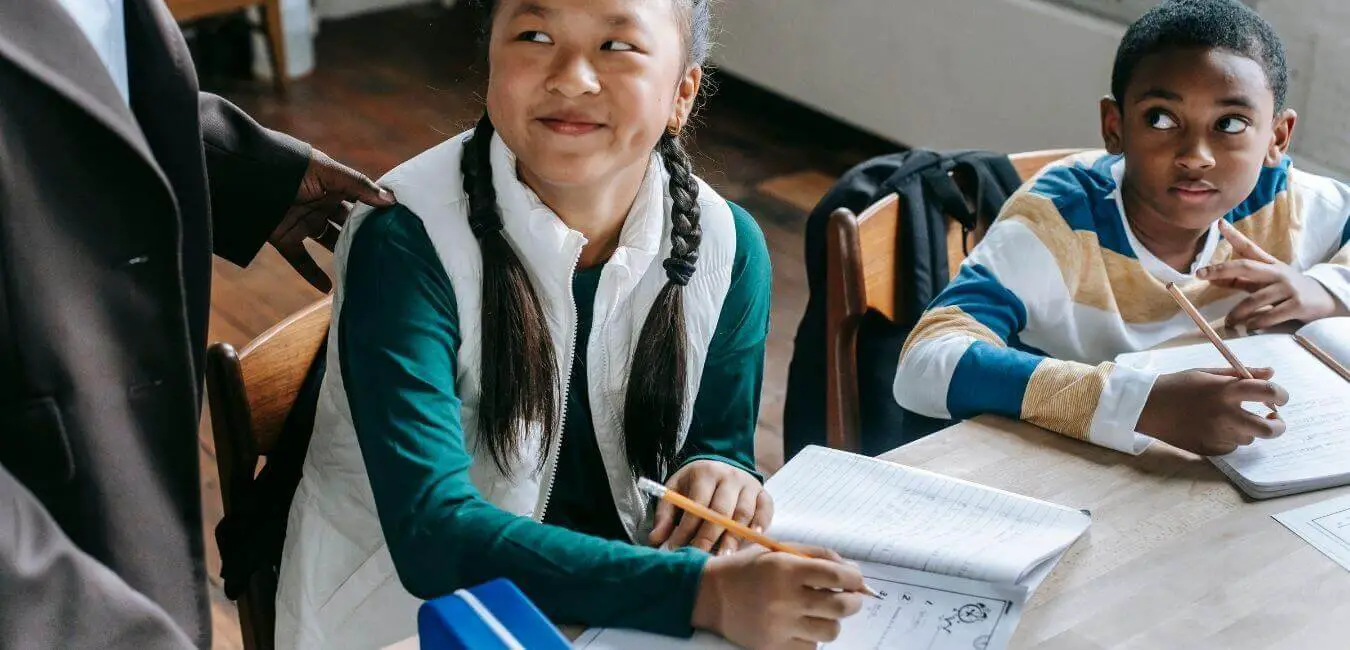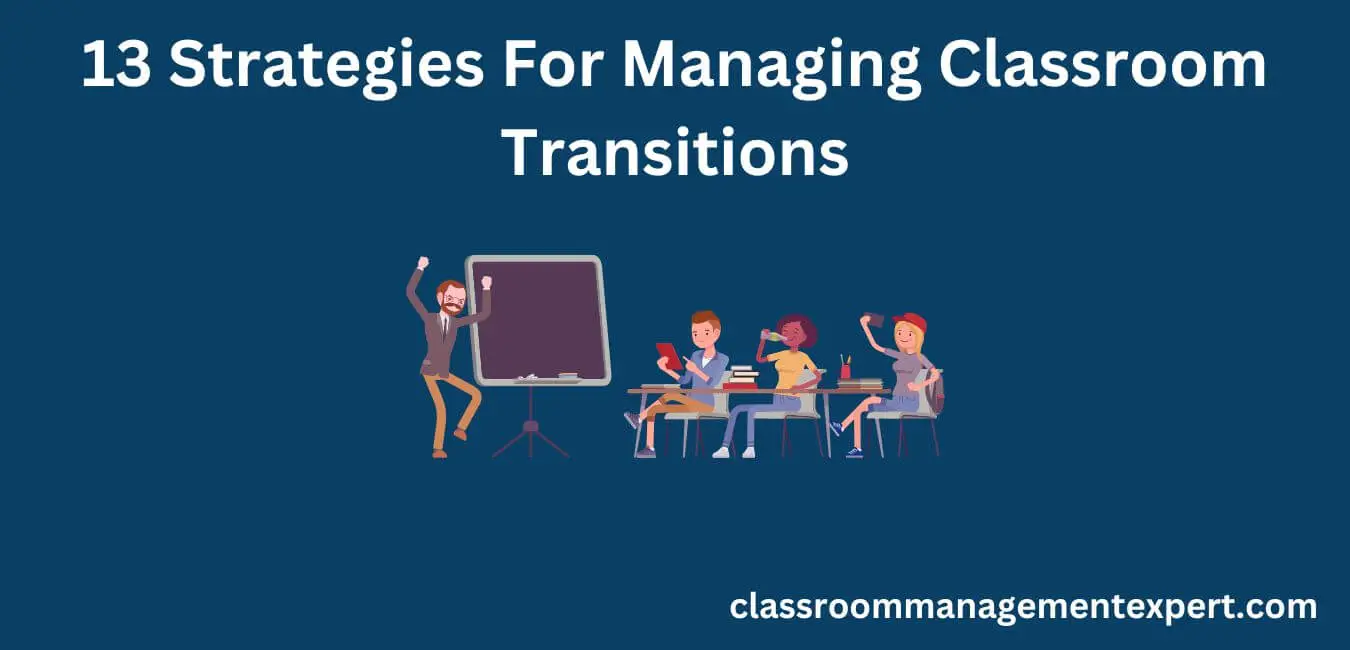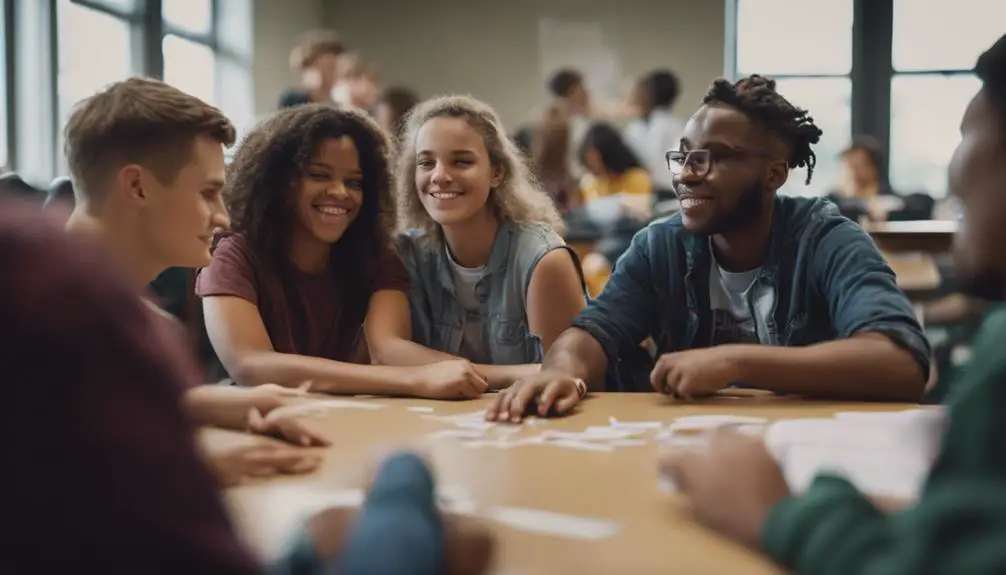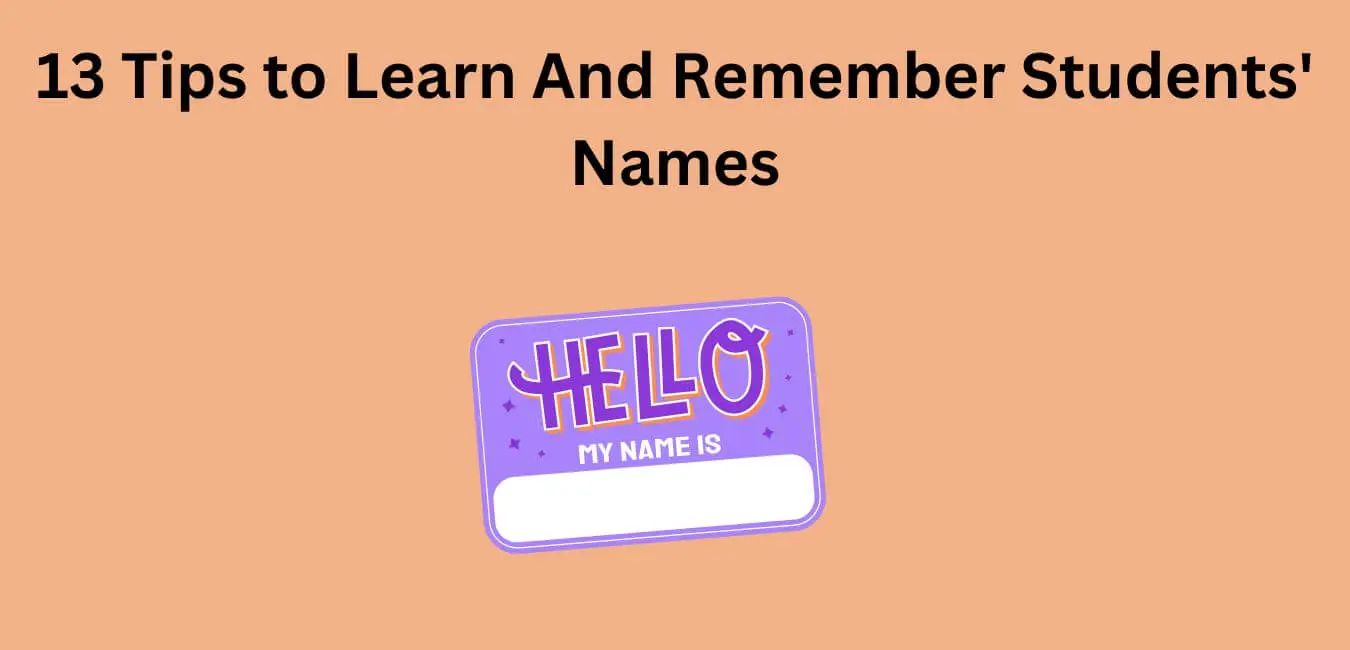We often hear about the distrust between students and teachers. We can all agree that it’s important to find ways for both parties to feel safe and respected by one another to create a productive and positive classroom environment. That being said, there are many things we as educators can do to regain the trust of our students after they have lost it.
The first thing you should do is be aware of your body language because this is what will show our students whether or not we trust them or not. Make sure when you stand in front of your class, you maintain good posture which shows confidence and control over the situation. Next, always try to keep an open line of communication with your student so they know how their day went from your perspective. They might have an opinion or insight you weren’t aware of so keep your ears open to what they have to say. Finally, be willing to listen and strive for a mutual understanding between both parties because this is where trust can begin again. Never forget that the classroom should be a safe place for everyone involved, including yourself!
Why Trust is Great for an effective classroom environment?
Throughout our education, we are repeatedly told that trust is a necessary component of a healthy relationship. To build a quality working relationship, people must be able to trust each other and feel as though they can depend on those around them. This idea also applies to the classroom setting. When teachers can build a level of trust with their students, it is much easier for them to have an effective classroom environment. On the other hand, when teachers don’t have this type of trust in place, then they are less likely to be successful.
1) Trust improves student motivation
One major way that trust impacts the effectiveness of a classroom environment is by improving student motivation. When teachers can build that level of trust with their students, then the students are more likely to want to put forth a greater effort and do their best work. This type of positive relationship encourages kids to want to give 100% to maintain this good standing and earn the teacher’s approval.
2) Trust improves student achievement
Similar to the point above, trust has a major impact on student achievement. When students can see their teacher as someone they can depend on, then it’s much easier for them to put forth their best effort and try to learn as much as possible. Ultimately, this means that the students will be more successful by the end of the year.
3) Trust allows for teachers to give students more responsibility
If a teacher doesn’t have a strong level of trust with their students, then they will be much less likely to allow them to take on additional responsibilities in the classroom. For kids to succeed in school, they need experience taking care of their responsibilities. When teachers give their students the responsibility to take care of certain tasks, then they can see firsthand how well they’re able to handle these types of challenges.
4) Trust reduces conflict
One major reason that trust matters so much in the classroom is that it has a direct impact on how many conflicts arise throughout the school year. When students and teachers don’t trust each other, then there is much more likely to be fights or conflicts that pop up. Not only does this hold the overall classroom environment back, but it also slows down how quickly kids can learn.
5) Trust allows for an open line of communication
When teachers and students establish a high level of trust, then there is much more of an open line of communication between them. Kids are more likely to feel comfortable coming forward if they have any problems or questions that they need some help with. When kids can communicate openly with their teachers, then the teachers can provide better instruction and help them be successful in school.
6) Trust helps to build a positive rapport
If teachers can build this level of trust with their students, then they will also have more of a positive rapport with them. This means that the students are much less likely to cause problems in the classroom since they don’t want to jeopardize their standing with the teacher. Kids need to be able to trust their teachers so that they can feel as though they’re on the same team and working together to accomplish a common goal.
7) Trust helps kids develop better social skills
Since trust encourages an open line of communication, it also impacts how well students can interact with others in the classroom. When kids have this level of trust and feel as though they can come forward and speak with their teachers, then it becomes easier for them to develop better social skills. This is one of the many ways that trust improves the classroom environment.
8) Trust allows teachers to focus more on teaching
It’s much more difficult to be an effective teacher if major conflicts or problems are arising in the classroom. This can make it much more difficult for teachers to focus on actually teaching kids and doing their job well. The best thing for everyone involved is if there is a strong level of trust between all parties, especially when it comes to learning in the classroom.
9) Trust helps students learn how to solve problems
When teachers can establish this level of trust with their students, then it’s much easier for them to help kids learn how to solve problems on their own. When teachers are directly involved, then the students oftentimes feel as though they’re not able to manage things properly. This can make learning harder for everyone involved.
10) Trust improves the overall classroom environment
When students and teachers have a strong level of trust between them, then it also has a positive impact on the overall classroom environment. This is because the students feel as though they’re able to be more comfortable in class and come forward when they need help with certain things. Not only does this make learning easier for them, but it makes teaching much more effective for the teacher.
11) Trust reduces stress
Since trust can improve communication, it also has a positive impact on reducing stress levels in the classroom environment. This is important because it allows kids to learn more effectively and feel much more comfortable with their surroundings. The result is that everyone benefits from this level of trust.
For more on classroom management, check here.
How to avoid losing your trust with students, as a teacher?
1. Keep an open mind and understand that your students might have a better way of doing things than you do, so listen to them with an open heart. This will only help the lesson become more productive.
2. If you don’t know something, then admit it and ask your students to help you, as they might know the answer to your question. This will only help strengthen your relationship with them so that they are more likely to go out of their way for you.
3. Do not berate students if they do something wrong or incorrectly because this could devastate them and make it so that they never ask questions about things they do not understand.
4. Always be on time for your classes and make sure that you are there if they need anything, whether it is an extension or some advice. This will only allow the class to become more productive and engaging for everyone involved.
5. Do not be afraid to laugh at something funny that happens in class because this will show your students that you are not afraid to have fun with them and be human.
6. If a student has done something impressive then let them know because this will encourage them to do more of the same in the future. This is important for both their lives outside of school as well as within it.
7. Don’t take things personally if a student doesn’t like your class or what you are doing as it will do more bad than good. Furthermore, while some students may not like you as a person, this does not mean they do not respect you as their teacher.
8. Make sure that there is always a fair amount of work so that the majority of your students are satisfied with the amount of effort they are putting in, while also not having anyone left behind.
9. If you’re losing your patience, then take a short break and come back to the situation afresh, as this will allow you to look at it in a new way so that there is room for compromise or improvement.
10. Always be open to listening to your students and taking in what they have to say so that they know you care about their opinions and ideas even if you might not always want to act on them.
11. If a student is making progress then let them know because this will encourage them to keep trying for future success, as well as allow you both to feel good about the situation.
12. Try not to be too hard on your students if they are making mistakes because it might discourage them and make them afraid of asking questions in the future, which could lead to them not learning what you are trying to teach them.
13. Make sure that everyone is included in whatever activities you do so that no one is left out and that they feel appreciated for their efforts.
14. Learn to take a step back from your emotions so that you can look at the situation more objectively, as this will allow you to make better choices and decisions about what to do next.
15. Make sure that you do not gossip about students because this is neither fair on them nor is it fair to you since all the students will know what you are doing. Furthermore, this could cause them to lose trust in you.
16. Be willing to admit when you are wrong so that your students understand that they can come to you if they need help or want some advice. This will allow them to get better results in their future work.
17. Try to avoid making mistakes yourself, as it will only make you seem less capable than other teachers, especially if they know that you have made a mistake and that you could do better. Furthermore, your students might take advantage of this and think that it is acceptable for them to do the same.
18. Do not lose your temper with your students because this will cause them to lose respect for you and want to stray away from any positive relationship that you might have with them.
19. Do not forget about the students who are not as motivated or capable of doing well in class, since they will need the most help and attention that only you can provide. Try to include them in your lessons so that they do not feel left out.
20. Make sure you have a good understanding of all the different types of students, their needs, and their capabilities, so you can assign tasks based on how much effort they need to put in while also getting results that are commensurate with their abilities. This will allow everyone to feel good about their results since they know they have done as much as they can.
21. Make sure that you are always open for discussion or answering questions from your students, whether it is during class time or after it ends.
22. Do not be afraid to step outside the box when it comes to presenting information because this will make things more interesting and allow you to look at new ways of explaining ideas.
23. Make sure that you give thorough and clear instructions so that students know exactly what is expected from them, without any misunderstandings.
24. Always make class interesting and engaging by using multiple activities and incorporating activities from other classes you have taken. This will make it easier for students to stay attentive and alert despite their hectic schedules, as well as approach you with new topics during the next class as they trust your capacity as a teacher.
25. Do not ask your students to do things that you yourself have no intention of doing. This includes talking about a topic if you have never done that before, and commenting on something, or answering a question if you are not sure how to do it.
How To Regain Your Students’ Trust?
Everyone makes mistakes. That’s something that we humans need to get over and move on from, or else we’ll never get anywhere in life. However, certain people make more mistakes than others; teachers often find themselves screwing up at one point or another. But how can you fix this? How can teachers start regaining the trust of their students?
Here are 20 guidelines to help you start regaining your students’ trust:
1. Be as lenient as possible when it comes to homework, grades, and the curriculum. In the long run, it’ll benefit everyone involved.
2. Avoid calling on a student who isn’t paying attention.
3. If a student asks for help but doesn’t want others nearby to hear, try leading them somewhere private before helping them out.
4. Remember that your actions speak louder than your words. Others will be more inclined to follow your example than listen to your orders.
5. You can’t expect students to respect you or do what you say if you don’t even respect yourself!
6. If a student is obviously not paying attention in class, wait until the end of class and pull him or her aside for a chat.
7. Always be positive when talking to a student—compliment them on their work and ideas, not on how much you like their hair or clothes.
8. Don’t be afraid to apologize when you’re wrong! If your students confront you with a problem, own up to it and try fixing it the next time around.
9. You, as well as your students, are human. Mistakes happen; all you can do is apologize and learn from them!
10. While it’s important to keep your lesson plans organized, it’s even more important to make sure they’re understandable by those who will be learning from them.
11. You need a break once in a while too—don’t expect your students to listen if you’re clearly exhausted.
12. Don’t take any chances with low-level misbehaviors, such as tardiness or talking out of turn. Take care of these immediately so they do not become bigger issues later on.
13. Expect the unexpected! Be prepared for your lessons by bringing extra supplies and preparing backup plans if necessary.
14. Remember that not everyone learns the same way, so do your best to accommodate all kinds of learners in your lessons!
15. Give your students a chance to share their ideas by asking open-ended questions and avoiding yes/no questions at all costs.
16. Encourage teamwork outside of the classroom by holding special events, such as group sports or games.
17. You should never have to question whether or not you can trust your students; if they ever cross the line, talk to them immediately!
18. If one of your students seems sad or upset, be sure to ask what’s wrong and see if there’s anything you can do to help.
19. Always keep eye contact when talking to a student—you don’t want to seem like you’re avoiding them or the issue at hand.
20. The more effort you put into your classes, the more your students will get out of them!
Honest mistakes are inevitable, but the way we react and correct them is what defines us. Take the necessary steps to regain your students’ trust, and they will show you that you’ve earned it!
Final Thoughts
There are many ways to regain your students’ trust. It’s important for teachers not to give up on the relationship, and it’s also very important that they take responsibility when a student needs help or attention. If you want more information about how to fix mistakes in the classroom, be sure to continue reading our articles!



















